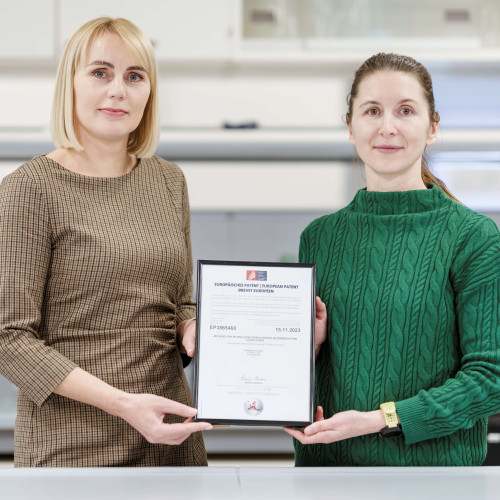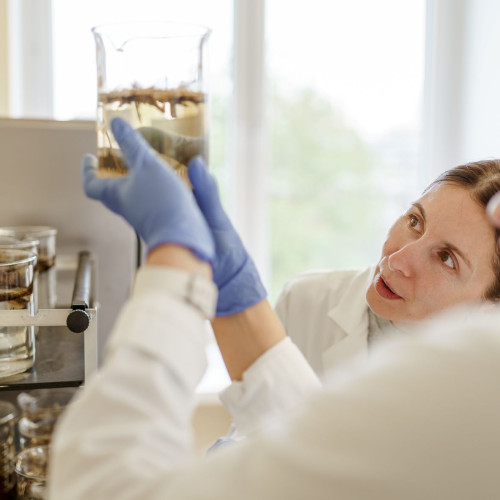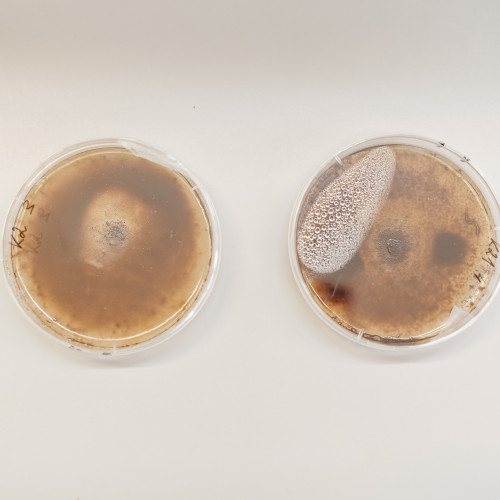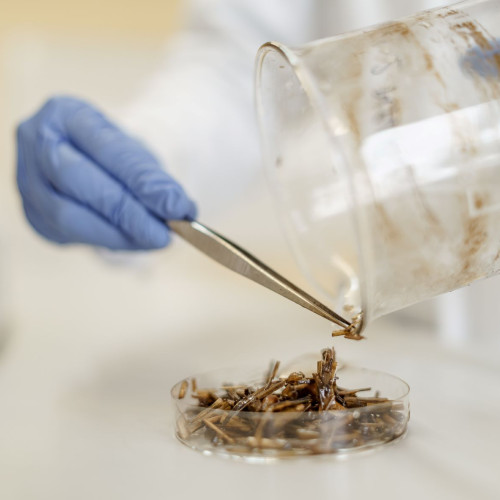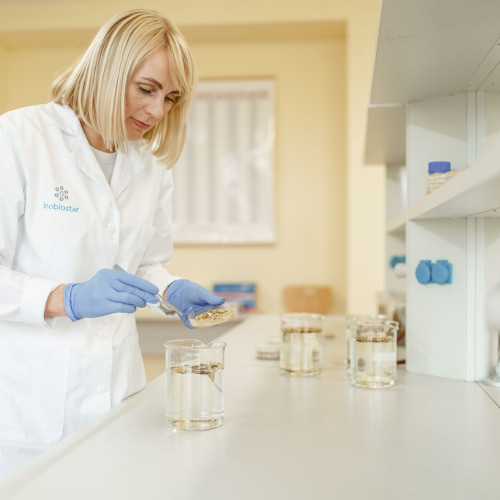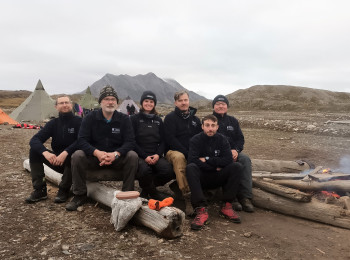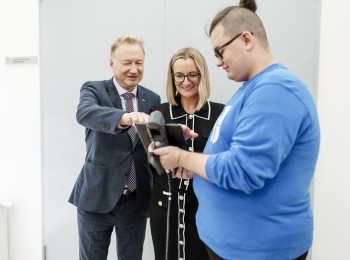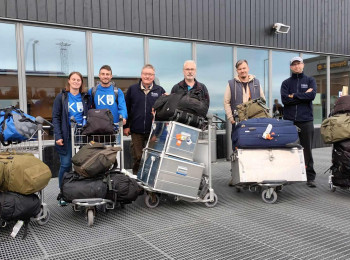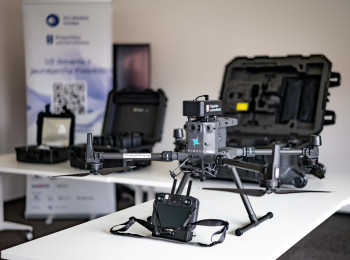Born in the laboratories of KU by combining knowledge from the fields of technology and biology, this invention was successfully tested and showed massive potential for practical application. It was officially granted an EU patent and listed on the unitary patent system at the end of last year. This status guarantees invention protection for 20 years in 17 EU Member States. According to one of the authors, dr. Tatjana Paulauskienė, this is an important step in bringing this technology to market – gaining protection for intellectual ownership brings a new layer or authenticity to a scientific idea, making it more attractive to investors and allowing it to gain traction on the market.
The process of obtaining an EU patent took more than 3 years. The team initially submitted their application on 25 September, 2020.
„We are glad to see this consistent collaboration and fusion of technology and biology competences take shape. Receiving a patent is a sign of recognition – it confirms that we are moving in a relevant and meaningful direction. Furthermore, it motivates us to continue working in this area further, and to create technologies that contribute to making seas and other bodies of water that surround us cleaner”, dr. Marija Kataržytė notes.
This biotechnology was granted a Lithuanian patent in 2020.
KU spin-off “Inobiostar”, which was founded for expanding this biotechnology, is partnerins with KU scientists to continue scientific research and adapt this invention to another material – aerogel. Before this, scientists were experimenting with a cheap and natural product of agriculture – hay – by hydrophobizing it and spreading oil-eating microbes on its surface. “At the current stage, our goal is to test this biotechnology with aerogels. They are very efficient: 1 gram can absorb up to 50 grams of oil products. This indicator surpasses other market alternatives by 500 percent. Aerogels are also environment-friendly, and they can be reused. This material is made from paper waste”, dr. Tatjana Paulauskienė, company lead at “Inobiostar”.
The entire team behind this biotechnology is continuously working together and preparing to apply for one of “Horizon Europe” programs, which could provide funding for further research and experimentation. If this application is successful, the plan is to open a small aerogel production showroom, where the team could produce enough material for continued testing and, ultimately, license and (or) begin to commercialize this operation.

